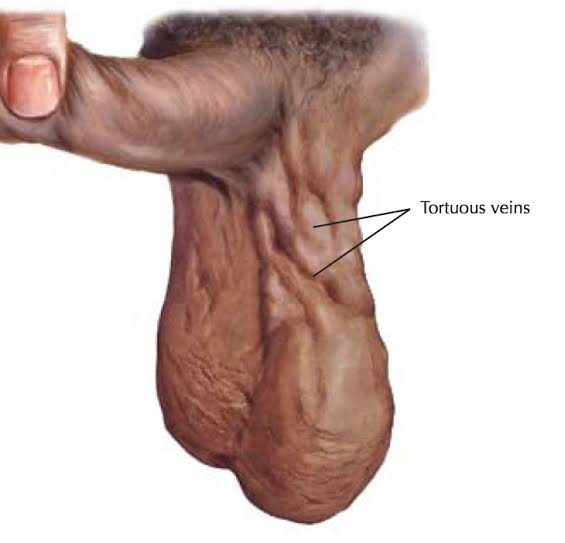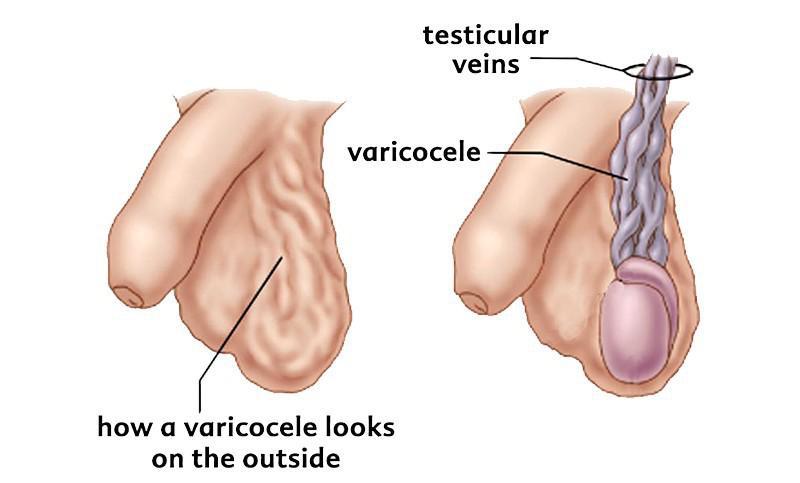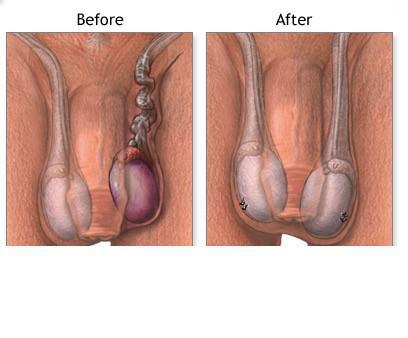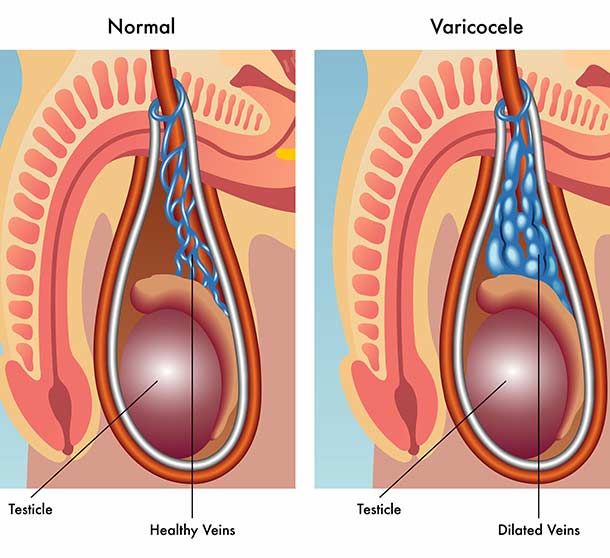By Chioma Obinagwam
Varicocele could be a major cause of infertility in men since it affects 15 percent of adult men.
Confiance News gathered from the official Twitter handle of First Doctor, the Chief Executive Officer (CEO) of Telemed Online Clinic on Thursday.
According to First Doctor, a varicocele is an enlargement of the veins (blood vessels) inside the scrotum.
He added that it may occur due to poor functioning of the valves in those veins, or due to compression of a vein by a nearby structure such as tumor or cancer of the left kidney.

“People with varicoceles may experience the following symptoms:
1. A noticeably swollen vein in the scrotum (as shown in this pic)
2. A disturbing feeling of weight in the scrotum
3. Pain in the scrotum which increases on standing, and
4. Shrinking of the testicles.
Sometimes, however, none of those varicocele symptoms mentioned will occur.

“In fact, some people with varicoceles will feel nothing more than a dull, aching, or dragging pain in their scrotum which gets worse after doing some exercise, or at the end of the day.
Although Varicoceles may not produce symptoms, they are a common cause of infertility in men,” he noted.
Telemed Online Clinic boss disclosed that the reason it leads to infertility is that male sperm cells are very fragile and varicoceles create abnormal temperatures inside the testis which can kill some sperm or reduce their quality, causing infertility.
He pointed that Varicoceles that cause no symptoms typically require no treatment.
But if symptoms occur, a surgery called varicocelectomy can be done to restore proper blood flow to your testis & hence restore fertility.
Many men are able to impregnate their women after this surgery.

Varicocelectomy is generally a safe procedure.
It can be done using an instrument called laparoscope (laparoscopic varicocelectomy) or through an open surgery (open varicocelectomy).
Both have high chances of improving your fertility.
“So, check and see if you have varicoceles, then talk to your doctor about whether this surgery or any other management is necessary,” he advised.
Source: First Doctor








Leave a comment